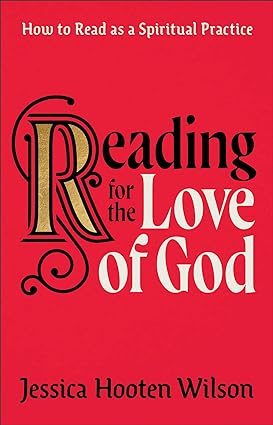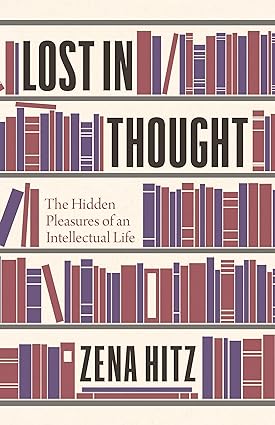In Defense of Leisure Reading
One of the best parts of being homeschooled is that a large part of our school day consisted in sitting on the couch listening to Mom read to us. I never thought of reading as “schoolwork”– it was just something we did for joy. But during my teenage years, my approach to books changed. I started to view books as objects to be leveraged for their usefulness.
It was through audiobooks that I recovered the joy of reading as an end in itself, instead of simply a means to pragmatic goals. I tell the story on my personal blog in my recent article, “How I Lost and Rediscovered the Joys of Reading.
I suspect many can relate to my early tendency to approach reading as a “useful” activity rather than a form of leisure. In the contemporary world, we like things that work, and we have never recovered from the fixation with utility wrought in the cultural disruption of the industrial revolution. Consider that even when we revive ancient practices that might offer a corrective to the fixation with utility, we often merely leverage these practices for their instrumental value. For example, it is common to practice mindfulness for its health benefits, to listen to Mozart because it’s good for the brain, to hike in order to lose weight, etc. Even appreciating beautiful literature and art often fall into the orbit of a utilitarian mindset. As C. S. Lewis reflected in An Experiment in Criticism, “The many use art and the few receive it.”
I don’t want to throw out the baby with the bathwater. The last thing intend is to deny is that reading is useful. After all, I am who I am today because of the countless lessons I have gleaned from books over the years. And even beyond specific lessons books teach us, they enlarge our being. Also, we naturally learn from reading, which is why we struggle with texts from foreign languages, even though the joy may be years down the road. So certainly, books are useful.
Yet insofar as education is fundamentally about the retraining of our desires, a good teacher will always aim to produce students who can delight in texts simply because they are beautiful regardless of use. A good teacher will strive to cultivate students who enjoy Goodness, Truth, and Beauty as a form of leisure.
For me, leisure is something I had to re-learn as I recovered the joy of reading that I initially had as a child before I tried to become a “serious” reader.
But what do I mean by “leisure”?
What is Leisure?
Leisure is, of course, a modern obsession. An army of academics now work in the field of “Leisure Studies.” A subdiscipline within the social sciences, Leisure Studies looks at how individuals and communities respond to recreation, sports, tourism, and enjoyable events. The University of Oklahoma now offers graduate degrees in leisure studies, while a peer reviewed journal, The Journal of Leisure Research, offers readers the latest scholarship on how people are having fun (along with methodologies and theoretical frameworks for modeling this).
When I refer to “leisure,” however, I don’t mean recreation or fun. I discussed leisure in my previous post, “Leisure and its Discontents: Josef Pieper and the Art of ‘Useless’ Reading.” In that post we considered Aristotle’s insight that true leisure involves the pursuit of goods that are valuable in themselves, and not merely as instruments to other ends. I suggested that reading reaches its greatest nobility when it has this leisured quality.
Why God Isn’t Useful

GOD IS USELESS
Wilson was being intentionally provocative and got the response she expected. Her Christian college students were angry and dismayed. One student exclaimed, “God may not be useful to you, but he is useful to me. I pray to him every day.”
Wilson answered, “That is called idolatry.” She continued by pointing out, “If you are using God, then you are treating him like an object. You are the subject. You are reigning over him and making him useful to your own purposes.”
In reflecting on this incident, Wilson remarked:
What I had challenged in my students was not their belief in God but their idol of use. They prized utility so much that they had even—unintentionally—conceived of God in terms of his usefulness to them. The reality is that God is useless. We humans cannot use God for any other thing than to be enjoyed. God is the end of all things. He is only to be enjoyed.
Wilson draws on the theology of St. Augustine, who made distinctions between (a) things which are to be enjoyed, (b) things which are to be used, (c) and things which are to be both enjoyed and used. Some things are only to be used, like tools. By contrast, God alone is only to be enjoyed, not used, since he is the ultimate source of beatitude (happiness). Many other things, including art and other people, are to be both used and enjoyed.
As you may have guessed, Wilson’s larger point is about reading. Reading is a thing to be used and enjoyed, and when we use literature for enjoyment, we are indirectly enjoying God, the source of everything good, true, and beautiful. Yet so often we approach books only for their usefulness. She continues:
We misuse literature when we only use it or when we use it for an end other than the enjoyment of God…
We read a manual on car mechanics so we can fix a car. That kind of reading is solely useful. But we should not read Virgil’s Aeneid in order that we may check a box on a great books list. Rather, a book such as the Aeneid is to be used—for pleasure and edification temporarily—and ultimately enjoyed in how it points us to God.
I think Wilson is right, but this is a hard lesson for Americans. Whereas many cultures around the world have a strong tradition of leisure, the American stress on productivity and pragmatism makes it difficult to surrender to the indirection of art; consequently, we want art and literature to give us a return on our investment, to do something for us.
The Uses of “Uselessness”

But when Hitz grew up and became an academic, her focus gradually shifted. Slowly, the life of the mind started to be associated with its utility, including social prestige, career advancement, and “making a difference” in the world. Hitz became an activist, using her intellectual life as a tool for various social-justice causes. She lost touch with her early love of liberal arts for their own sake.
Realizing that something was lacking, Hitz embarked on a spiritual journey that eventually culminated in living as a nun in a rustic community in the wilderness of eastern Ontario. By working in the kitchen, the handicrafts department, or the garden, she slowly returned to the things that matter most. She rediscovered her childhood sense of wonder, the initial impetus to her academic pursuits. Through the healing routines and rhythms of the convent, Hitz was able to recover her love for the intellectual life. I discussed Lost in Thought in a 2020 blog post here at Salvo. From that post:
For Hitz, the intellectual life is like a love affair, or like prayer. There are many economic and health benefits to a love relationship, yet if a man holds his wife’s hand merely to experience those benefits, then we rightly say this is perverse. Such perversity will likely rob him of the very benefits a love relationship might otherwise bring. Similarly, there are many neurological and personal benefits to prayer and worship, but if a woman worships God merely to boost her brain, then that is perverse and, ironically, she will miss the irreplaceable benefits of prayer. Similarly, there are many uses for the liberal arts, but if one approaches the intellectual life simply for its pragmatic value, then one is in danger of missing that which makes the liberal arts useful in the first place. Hitz hints at this paradox in the title of the last chapter of her book, “The Uses of Uselessness.”
Wilson and Hitz are part of a larger conversation of academics, teachers, and readers who are pushing back against the pragmatism and utilitarianism of our cultural moment to encourage reading as a form of leisure. Other scholars making this same point include Devin O'Donnell (author of The Age of Martha: A Call to Contemplative Learning in a Frenzied Culture), Gregory Wolfe (author of Beauty Will Save the World: Recovering the Human in an Ideological Age), and Gracy Olmstead (author of “How Did You Read This Summer? If you devoured books for simply utilitarian reasons, you're not alone. So give it a rest.”) And, of course, this is the whole point of C.S. Lewis's classic An Experiment in Criticism.
Today leisure finds itself under attack from all sides. Whether from the cult of fun to the proliferation of the activist mindset to the fixation with utility, numerous pressures erode our freedom to approach reading as an activity valuable in itself, apart from what it can do for us. Christians have the opportunity to speak into this cultural morass from our theological tradition. That is what I am trying to do, in a small way, through this series of articles on leisure reading.
Further Reading
-
Leisure and its Discontents: Josef Pieper and the Art of “Useless” Reading, by Robin Phillips
-
How Did You Read This Summer? If you devoured books for simply utilitarian reasons, you're not alone. So give it a rest. By Gracy Olmstead
-
The Reading Life: The Joy of Seeing New Worlds Through Others' Eyes, by C. S. Lewis
-
What's the Use? Robin Phillips on Choosing Gratuitous Nature over Modern Pragmatism, by Robin Phillips
-
Lost & Profound: How One Woman Found, Lost, and Re-Discovered the Intellectual Life, by Robin Phillips
-
Canceling Western Civilization: Woke Fundamentalism’s Iconoclasm Is Just as Destructive as ISIS’s, by Robin Phillips
-
Fiction and the Christian Faith, by Robin Phillips
-
How I Lost and Rediscovered the Joys of Reading, by Robin Phillips
-
A War Against the Classics, by Robin Phillips
has a Master’s in History from King’s College London and a Master’s in Library Science through the University of Oklahoma. He is the blog and media managing editor for the Fellowship of St. James and a regular contributor to Touchstone and Salvo. He has worked as a ghost-writer, in addition to writing for a variety of publications, including the Colson Center, World Magazine, and The Symbolic World. Phillips is the author of Gratitude in Life's Trenches (Ancient Faith, 2020) and Rediscovering the Goodness of Creation (Ancient Faith, 2023) and co-author with Joshua Pauling of Are We All Cyborgs Now? Reclaiming Our Humanity from the Machine (Basilian Media & Publishing, 2024). He operates the substack "The Epimethean" and blogs at www.robinmarkphillips.com.
• Get SALVO blog posts in your inbox! Copyright © 2025 Salvo | www.salvomag.com https://salvomag.com/post/the-joys-of-useless-books



















